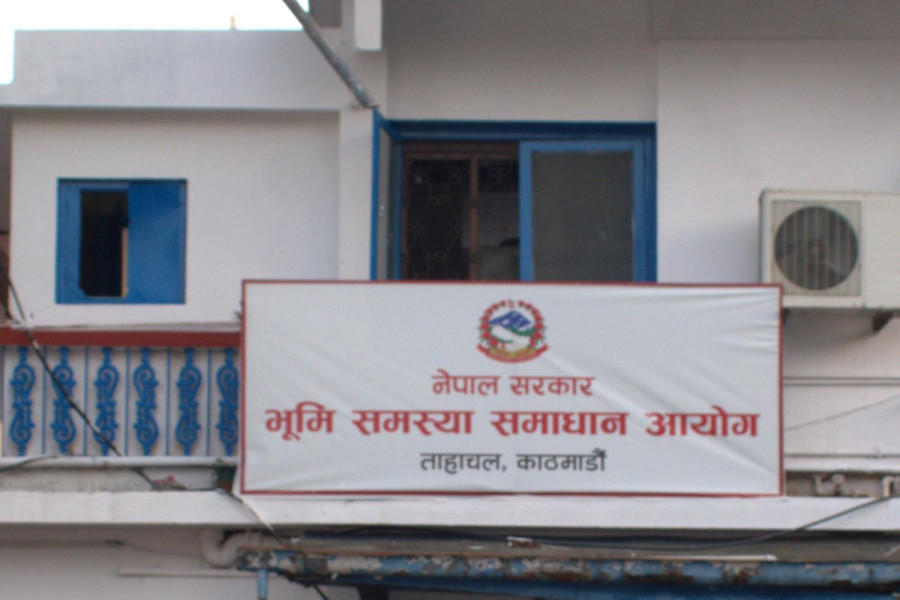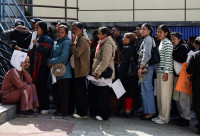National
Government dissolves Oli’s land commission
Says the body was oversized and current government lacks a mandate for land distribution.
Post Report
The interim government has dissolved the Land-Related Problem Resolution Commission constituted by the erstwhile KP Sharma Oli administration claiming the structure of the commission is unnecessarily large and the incumbent government does not have mandate for land distribution.
The commission-led by CPN-UML leader Hari Prasad Rijal was dissolved when it was close to distributing land ownership certificates in various places. Soon after taking the charge in July last year, the Oli Cabinet had dissolved the previous commission and formed a new one led by Rijal two months later. The commission has around 350 political appointees across the country including at the central office.
Soon after the dissolution of the commission, the employees at the commission submitted a memorandum to Prime Minister Sushila Karki, urging the government to reconsider the dissolution. They argued that the move would not only waste investments worth billions of rupees but also directly affect the lives of more than 1.3 million citizens who are engaged in or dependent on the commission's services.
According to the employees, the commission has so far registered 1,129,517 applications, including 88,895 from landless Dalits, 168,441 from landless squatters, and 872,181 from individuals living in unmanaged settlements. Following a recent call for additional applications on 15 August, an estimated 150,000 more applications are expected. This brings the total number of directly affected people to over 1.3 million.
They further warn that the government's decision could lead to the loss of significant public investment, throw the lives of hundreds of thousands into uncertainty, and contradict constitutional provisions. The decision also jeopardises the future of commission employees, hinders revenue collection, and may trigger increased socio-economic dissatisfaction and instability, the memorandum states.
In the memorandum, the employees at the commission have four demands which includes securing the employment, services, and future of the commission staff; ensuring uninterrupted continuation of public services such as land ownership certificate distribution, revenue collection, and data management; continuing the state’s important land reform initiative through sustainable solutions; and ensuring that no future changes negatively impact social justice, inclusive development, or long-term resolution efforts.
The dissolved commission was the 16th since the restoration of democracy in 1990.
Records at the land management ministry show that around 46,000 bigha of land (30,820 hectares) have been distributed to some 150,000 families over the past three decades. However, tens of thousands of families are still landless.
As per the working procedure of the outgoing commission, it would distribute per family 130 square meters of land in the Kathmandu Valley and 320 square meters in the rest of the country.
Similarly, the landless are eligible to get 1.5 bigha of land (6772.41 square meters) if they have been cultivating a piece of land for years. They, however, will have to pay a certain amount, which could be around 15 percent of the market price, for the land exceeding 1.5 bigha.




 22.17°C Kathmandu
22.17°C Kathmandu













